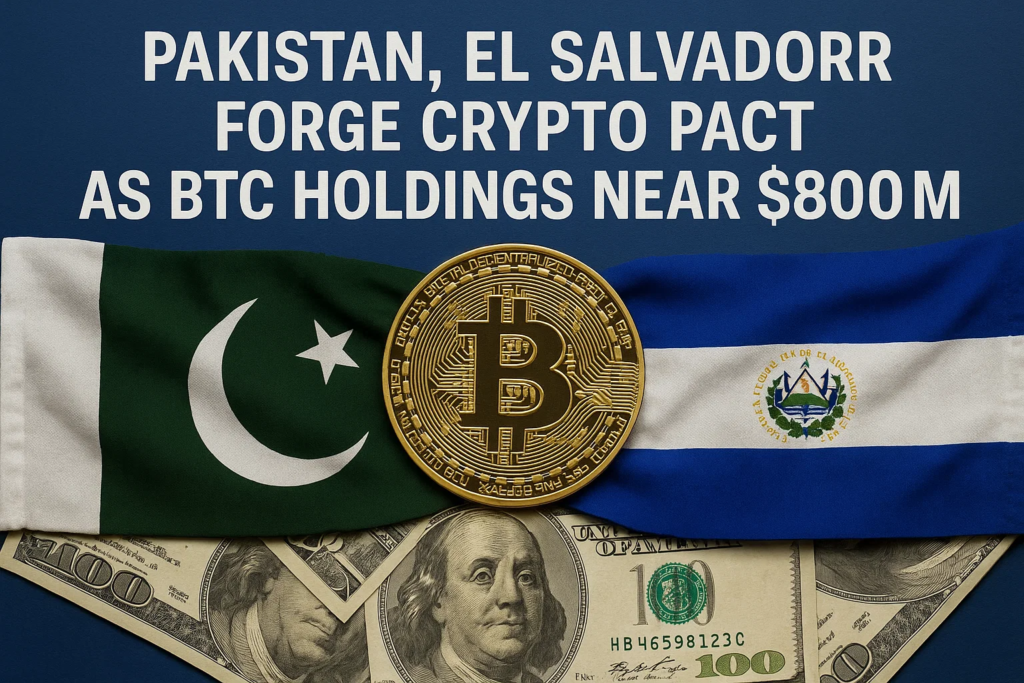In a groundbreaking move, Pakistan and El Salvador have formalized their first-ever bilateral relationship—centered not on trade or defense, but on Bitcoin and digital assets. The collaboration signals a bold geopolitical experiment in cryptocurrency integration and knowledge exchange.
The deal was initiated by Bilal Bin Saqib, CEO of the Pakistan Crypto Council and Minister of State for Crypto and Blockchain, during a visit to San Salvador. There, he met with El Salvador’s President Nayib Bukele, aiming to emulate the Central American nation’s ambitious Bitcoin strategy.
Pakistan is looking to learn from El Salvador’s experience in adopting Bitcoin as legal tender, a policy introduced in 2021. The new partnership will facilitate knowledge transfer on cryptocurrency adoption, public sector integration, and central reserve accumulation of digital assets.
Pakistan Pushes Forward Despite IMF Pressure
Pakistan’s interest in Bitcoin marks a strategic shift after years of skepticism. In May 2025, the country revealed plans to establish a Strategic Bitcoin Reserve. The move underscores a clear intention to diversify reserves through digital assets—though not without resistance.
The International Monetary Fund (IMF) has blocked Pakistan’s proposed subsidies for Bitcoin mining electricity, warning against policy divergence from conventional economic frameworks. However, Pakistan appears committed to progressing, drawing inspiration from El Salvador’s roadmap.
To create a regulated environment, Pakistan has launched the Pakistan Digital Asset Authority (PDAA)—tasked with overseeing its burgeoning $25 billion crypto market. This initiative aims to develop robust regulatory guardrails for digital asset trading, custody, and taxation.
Key developments in Pakistan’s crypto strategy:
- Strategic Bitcoin Reserve under planning
- PDAA formed to regulate a $25B market
- IMF opposition to mining subsidies remains a hurdle
El Salvador Maintains BTC Accumulation Strategy
El Salvador continues to deepen its Bitcoin play despite IMF warnings tied to loan conditions. While the government has paused direct BTC purchases using public funds, it has reportedly maintained accumulation through undisclosed channels.
Currently, El Salvador holds 6,239 BTC, with a market value nearing $800 million, representing a $350 million notional gain. The country has also mined over 400 BTC using geothermal energy from volcanoes—part of its sustainability-focused mining initiative.
President Bukele remains steadfast, portraying Bitcoin as a vehicle for financial independence and technological advancement. With Pakistan now at the table, El Salvador’s crypto-centric diplomacy may mark a new model for global digital asset partnerships.


